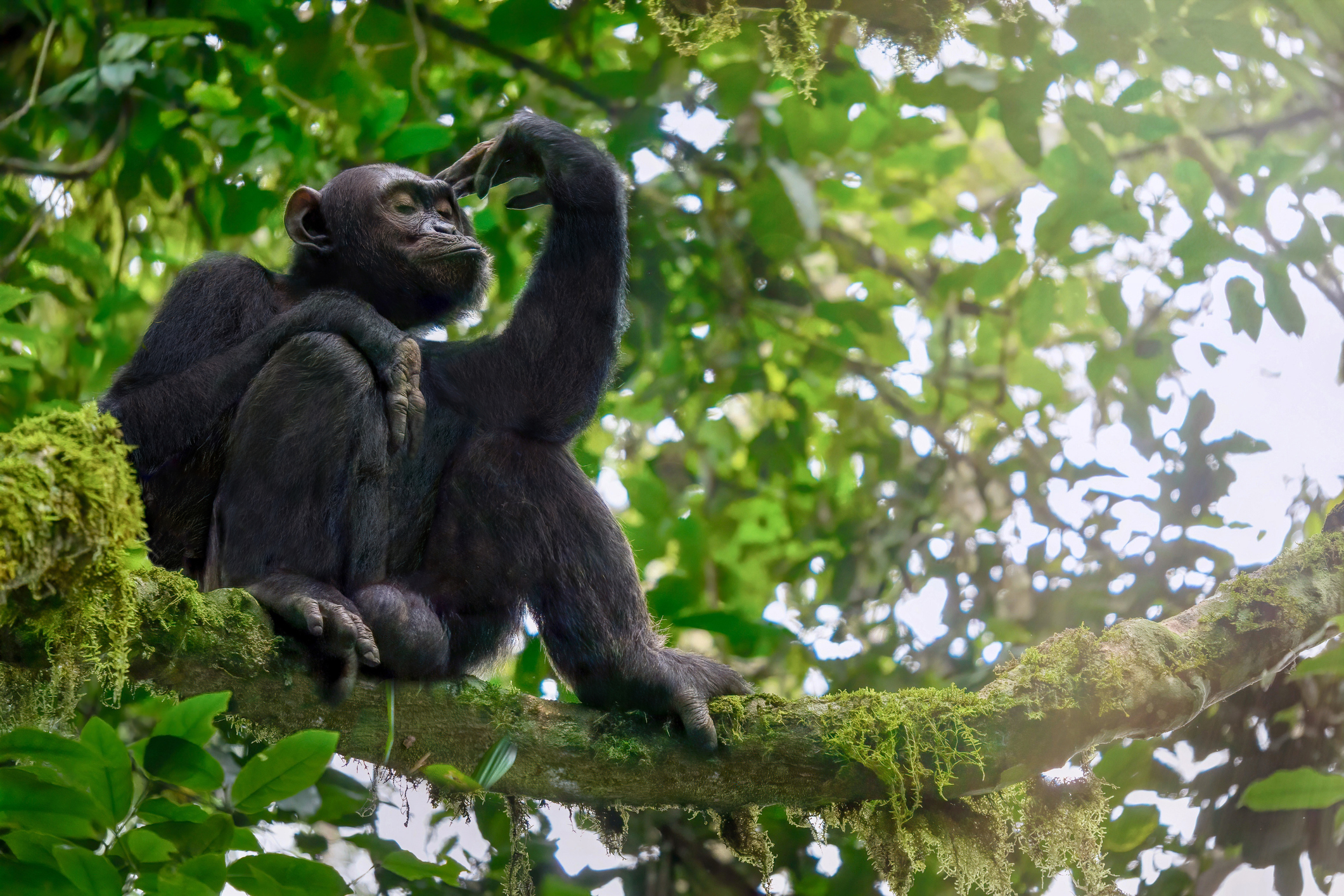
Primate behaviour changed as zoos closed for pandemic

Primates spent more time resting and alone, performed more sexual and dominance behaviours, and ate less when zoos were closed to the public during the first COVID-19 lockdown, a study suggests.
Research involving experts in animal behaviour and welfare at Nottingham Trent University, Harper Adams University and the University of Wolverhampton investigated how the behaviour of bonobos, chimpanzees, western lowland gorillas and olive baboons changed as visitors began to return to zoos after prolonged and repeated periods of closure.
Human-animal interactions and the impacts of the presence of visitors are considered crucial in relation to zoo animal welfare with studies showing that different species and even individual animals respond differently to different humans.
Research was undertaken in collaboration with teams at two zoos. Bonobos, chimpanzees and gorillas were observed at Twycross Zoo, while baboons were monitored by keeping staff at Knowsley Safari Park.
The researchers found that as visitors returned bonobos and gorillas spent less time alone and gorillas spent less time resting. Chimpanzees ate more and engaged more with their enclosures when the zoo was open. Olive baboons performed less sexual and dominance behaviour when visitors returned and approached visitor cars more frequently than they had the ranger’s vehicle when the park was closed.
The research team argues that, while it can be difficult to accurately state whether experiences were positive, negative or neutral for individual animals, the return of visitors appeared to specifically stimulate the chimpanzees and baboons. Similarly, bonobos and gorillas spending less solitary time could be seen as positive, although the reduction in resting behaviour in more sedentary gorillas could also suggest they were disrupted by visitors, the researchers say.
The team observed that gorillas altered the use of their enclosure which suggested they were able to modify their behaviour to reduce potential overstimulation and manage their own experiences effectively. Baboons may have been stimulated by visitors and the presence of cars, the researchers say, but there was a threshold after which this did not increase. And the study reports that their increased sexual behaviour during closure may have been because they did not have the stimulation of the presence of moving vehicles.
The University of Wolverhampton team included Dr Stefano Vaglio (Reader in Animal Behaviour), Dr Sara Fontani (Marie Curie postdoctoral fellow), and a University alumna - Ms Sarah Hickman (MSc Wildlife Conservation).
Dr Vaglio said: “This collaborative work with regional safari parks, zoos and universities provided us with invaluable insights about the impacts of the C19 lockdown closures on zoo animals. Our newly established EU-funded endocrinology laboratory based at the University's Rosalind Franklin building at its City Campus in Wolverhampton was crucial to add objective and rigorous hormone measurements to behavioural observations in order to assess such impacts.”
“Primates are some of the most cognitively advanced species in zoos and their interactions with visitors are complex,” said Dr Samantha Ward, a zoo animal welfare scientist in Nottingham Trent University’s School of Animal, Rural and Environmental Sciences.
She said: “A limitation to understanding how visitors can affect behaviour of animals in zoos and parks is that they rarely close to the public for prolonged periods, so this provided us with a unique opportunity.
Dr Ellen Williams, a zoo animal welfare researcher at Harper Adams University, said: “Our study showed the varied ways in which visitors can influence the behaviour of primates in captivity. Behavioural changes and changes in enclosure use in the presence of visitors highlights the adaptability of zoo species to their environments. Provision of environments which enable animals to actively adapt in this manner is really important for their welfare.”
She added: “This collaborative study was really important in enabling us to understand the impacts of the closures on zoo animals. Future work could involve looking at the impact on a wider range of species in both zoos and safari parks as well as differences among individual animals.”
Behavioural data for the study was collected from April 2020 to September 2020 and November 2020 to January 2021 and spanned multiple open and closure periods.
This study is published in the journal Animals with associated media coverage appearing in a very broad range of media outlets including The Guardian and the Daily Mail as well as radio & TV channels, including BBC Radio 4 and ITV Central News, and the story has also been covered in news outlets in Italy and Poland.
ENDS
For more information please contact the Corporate Communications Team.


/prod01/wlvacuk/media/departments/digital-content-and-communications/images-2024/240624-Alumni-Awards-2024-Resized.jpg)
/prod01/wlvacuk/media/departments/digital-content-and-communications/images-18-19/220325-Engineers_teach_thumbail.jpg)
/prod01/wlvacuk/media/departments/digital-content-and-communications/images-2024/240627-UN-Speaker-Resized.jpg)
/prod01/wlvacuk/media/departments/digital-content-and-communications/images-2024/240320-Uzbekistan-Resized.jpg)
/prod01/wlvacuk/media/departments/digital-content-and-communications/images-2024/240229-The-Link-Resized.jpg)
/prod01/wlvacuk/media/departments/digital-content-and-communications/images-18-19/240726-Paramedics-Simulation-Resized.jpg)

